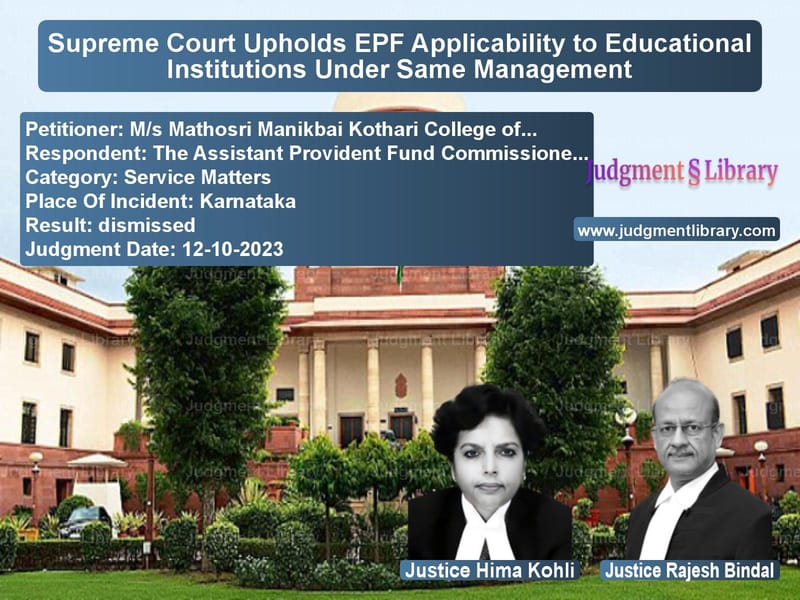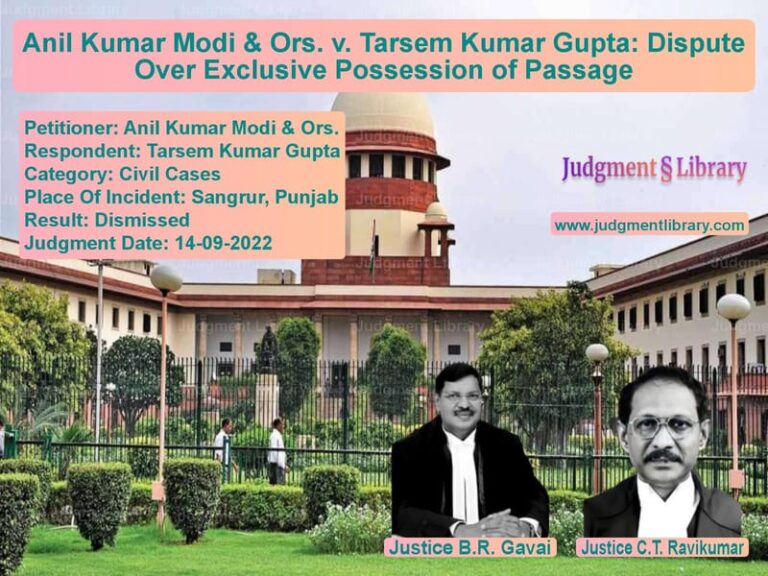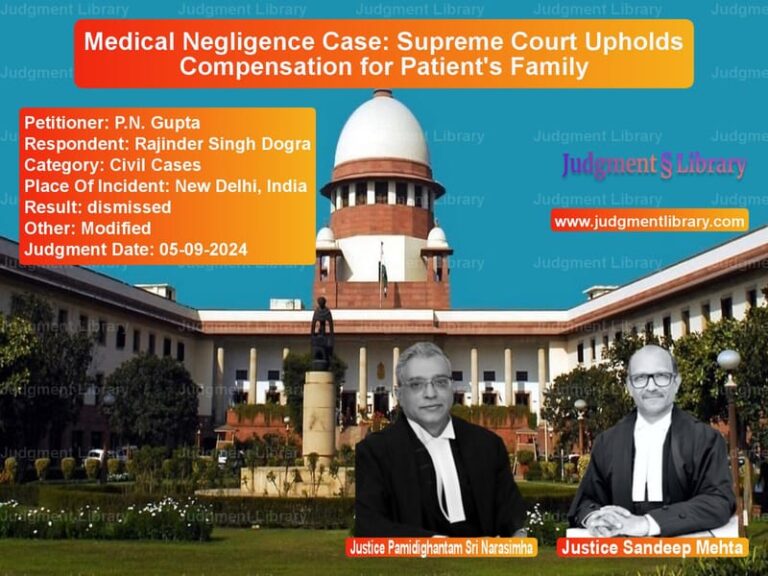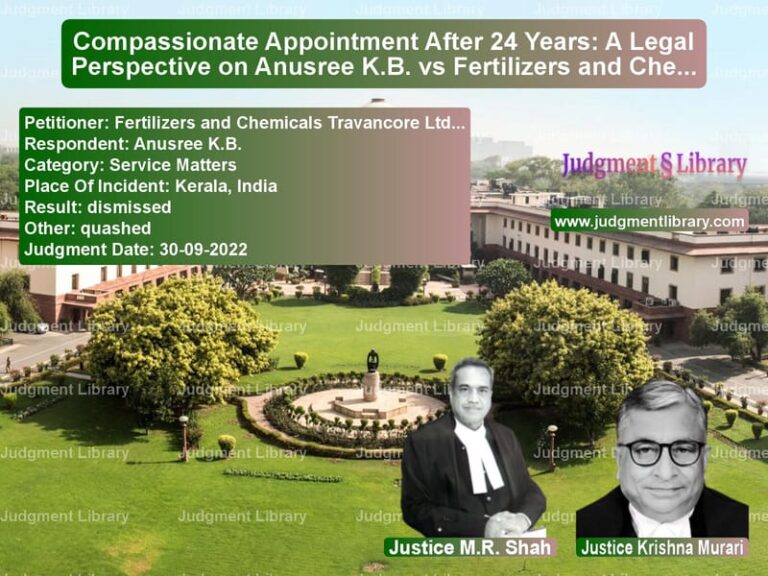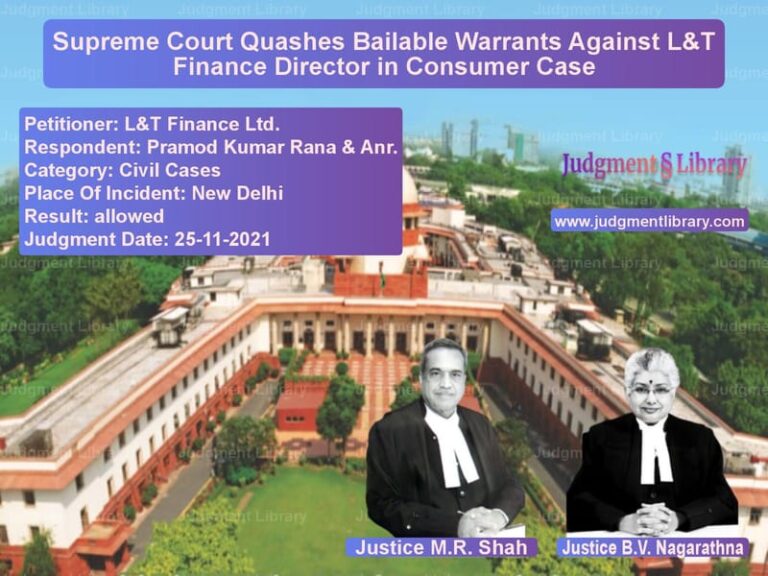Supreme Court Upholds EPF Applicability to Educational Institutions Under Same Management
The Supreme Court of India recently delivered a landmark judgment in M/s Mathosri Manikbai Kothari College of Visual Arts vs. The Assistant Provident Fund Commissioner. The ruling reaffirms the applicability of the Employees’ Provident Funds and Miscellaneous Provisions Act, 1952 (EPF Act) to educational institutions operating under a common management, regardless of their financial and administrative structures. The judgment is crucial for educational trusts and institutions seeking clarity on EPF compliance.
Background of the Case
The case revolved around the applicability of the EPF Act to Mathosri Manikbai Kothari College of Visual Arts, managed by the Ideal Fine Arts Society. The society runs two institutions:
- Ideal Institute of Fine Arts (Ideal Institute): Established in 1965, offering diploma courses in drawing and painting.
- Mathosri Manikbai Kothari College of Visual Arts (Arts College): Established in 1985-86, offering undergraduate and postgraduate courses in drawing and painting.
The dispute arose when the Employees’ Provident Fund Commissioner (EPF Commissioner) directed that both institutions be treated as a single establishment for EPF coverage, as their combined workforce exceeded the threshold of 20 employees required for mandatory EPF registration. The institutions had:
- 8 employees in Ideal Institute
- 18 employees in Arts College
The Commissioner ruled that since both institutions were operated by the same society and functioned from the same premises, they should be clubbed together under the EPF Act from March 1, 1988.
Challenges and Legal Proceedings
The college management challenged the EPF applicability through various legal avenues:
- They argued that both institutions were financially independent and had different affiliations and grants.
- They contended that clubbing them together was unjustified as they functioned independently.
- They appealed the Commissioner’s ruling before the EPF Appellate Tribunal, which upheld the applicability of the EPF Act.
- Subsequently, the institution moved to the Karnataka High Court, where a single judge and later a division bench upheld the Commissioner’s order.
- Finally, the institution appealed before the Supreme Court of India.
Arguments by the Institution (Appellant)
The appellant made the following arguments:
- The two institutions were distinct entities with different affiliations and grant-in-aid structures.
- The Ideal Institute received 100% grant-in-aid, whereas the Arts College received only 70% grant-in-aid.
- They had separate employees, accounts, and management structures.
- The decision to club them under EPF compliance violated their autonomy.
Arguments by the EPF Authorities (Respondent)
The Assistant Provident Fund Commissioner countered:
- Both institutions were managed by the same society, demonstrating a common financial and supervisory control.
- They operated from the same campus, making them functionally integrated.
- The onus was on the institution to prove that they were separate, which they failed to do before the EPF authorities.
- The institution did not provide sufficient evidence to counter the EPF coverage order.
Supreme Court’s Key Observations
The Supreme Court examined legal precedents and the criteria for clubbing establishments under the EPF Act. It cited past rulings, including:
- Pratap Press vs. Secretary, Delhi Press Workers’ Union: Emphasized that factors like common ownership, financial integrity, and functional interdependence must be considered.
- Regional Provident Fund Commissioner vs. Naraini Udyog: Held that separate registrations under different laws do not negate the applicability of the EPF Act if entities share a common management.
- Noor Niwas Nursery Public School vs. Regional Provident Fund Commissioner: Ruled that educational institutions under the same trust could be clubbed together for EPF compliance.
Applying these principles, the Supreme Court held that:
- Both institutions were functionally integrated, operated by the same society, and located on the same premises.
- The financial integrity between the society and the institutions was evident, as substantial funds were shared between them.
- The management of both institutions was the same, indicating a strong link between them.
- The institution failed to provide sufficient evidence to prove their independence.
Final Judgment
The Supreme Court upheld the rulings of the lower courts and the EPF authorities, stating:
- The institution was rightly covered under the EPF Act.
- Both institutions must comply with EPF contributions for their employees.
- The appeal was dismissed, with no relief granted to the appellant.
Implications of the Judgment
This ruling has broad implications for educational institutions and similar organizations:
1. Common Management and EPF Applicability
If multiple institutions operate under a common trust or society, they can be clubbed together for EPF compliance, regardless of separate financial structures.
2. Financial and Operational Independence Must Be Evidenced
Entities seeking exclusion from EPF coverage must provide strong documentary evidence proving their distinct operations.
3. Trusts Running Multiple Institutions Must Ensure Compliance
Educational trusts and societies must assess whether their institutions meet the EPF threshold collectively and ensure timely compliance.
4. Strengthens Employee Welfare Measures
The judgment reinforces that the EPF Act is a welfare legislation aimed at ensuring social security for employees.
Conclusion
The Supreme Court’s judgment in M/s Mathosri Manikbai Kothari College of Visual Arts vs. The Assistant Provident Fund Commissioner sets a strong precedent for institutions operating under a common management. The decision clarifies that mere administrative separations do not exempt institutions from EPF compliance if they share functional and financial integration. The ruling ensures that employees receive their due social security benefits under the EPF Act.
Petitioner Name: M/s Mathosri Manikbai Kothari College of Visual Arts.Respondent Name: The Assistant Provident Fund Commissioner.Judgment By: Justice Hima Kohli, Justice Rajesh Bindal.Place Of Incident: Karnataka.Judgment Date: 12-10-2023.
Don’t miss out on the full details! Download the complete judgment in PDF format below and gain valuable insights instantly!
Download Judgment: ms-mathosri-manikba-vs-the-assistant-provid-supreme-court-of-india-judgment-dated-12-10-2023.pdf
Directly Download Judgment: Directly download this Judgment
See all petitions in Employment Disputes
See all petitions in Pension and Gratuity
See all petitions in Public Sector Employees
See all petitions in Recruitment Policies
See all petitions in Judgment by Hima Kohli
See all petitions in Judgment by Rajesh Bindal
See all petitions in dismissed
See all petitions in supreme court of India judgments October 2023
See all petitions in 2023 judgments
See all posts in Service Matters Category
See all allowed petitions in Service Matters Category
See all Dismissed petitions in Service Matters Category
See all partially allowed petitions in Service Matters Category

